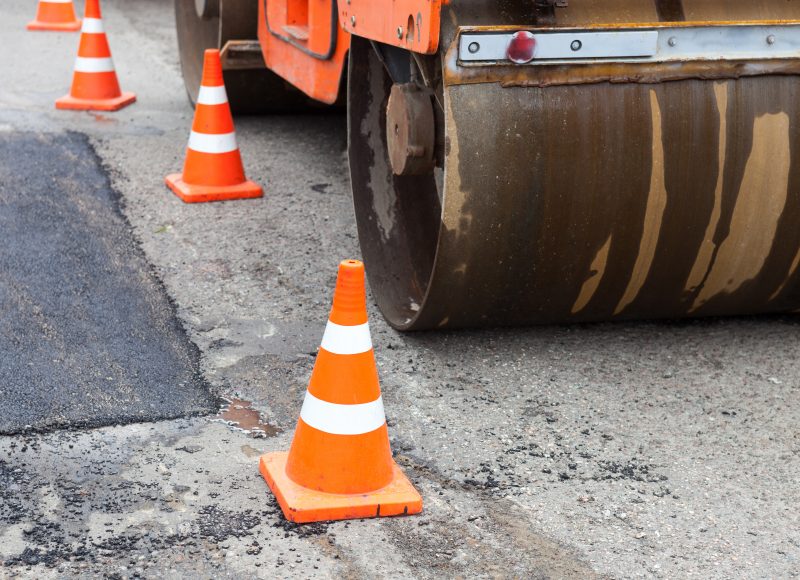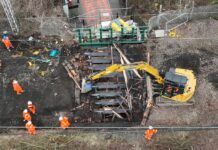
SCOTLAND’S roads network requires “urgent action” according to a new report from Audit Scotland.
The report claims the proportion of council-maintained roads classed as being in an acceptable condition has remained around 63% since 2011/12. According to Audit Scotland, councils’ spending on maintenance fell by 14% over the same period.
Transport Scotland maintains motorways and key trunk routes where spending has fallen by 4% since 2011/12. The report said the proportion of these roads in an acceptable condition has dropped from 90% to 87% over the same period.
Audit Scotland said proper road maintenance is “vital” for economic prosperity and safety.
Douglas Sinclair, accounts commission chair said, “The state of our roads is a major concern for the public. Surveys show that they remain dissatisfied, despite these concerns being flagged up in our two previous reports. Their voice needs to be listened to.
“Councils face increasing pressures and challenges but progress in developing a shared services approach for roads has been disappointingly slow. They can and should collaborate much more to secure better value for money.”
COSLA (the Convention of Scottish Local Authorities) said that at a time of austerity and rising demand for services, the fact the report shows the quality of local roads has been maintained should be seen as a success.
Councillor Stephen Hagan said, “Scotland’s Councils engage daily with their communities so they know just how important the state of the roads is to the public. The reality of the situation is that Scotland’s councils have done a good job with less resource in keeping the roads to a decent standard.
“It is clear that some councils, despite the financial challenges, have chosen to invest in road quality while others, for perfectly valid reasons, have chosen to spend scarce resource on other vital services. However, simply measuring pounds spent on roads maintenance is a poor proxy measure for quality – something which the report admits. They make clear that other factors, not least remoteness, historic investment patterns and winter weather all play a part in determining local road quality.
“Despite this the report has several tables and graphs which compare directly the financial investment made by councils. Local government is all for transparency but comparing councils in this way is not helpful and masks the good work that councils are doing, namely as the report acknowledges, that councils are delivering greater service efficiency and that councils are adapting their road maintenance to meet the financial reality.
“COSLA is a supporter of shared services where they can deliver improvements, but we are also clear they are not a ‘silver bullet’ in every case. It is perfectly possible for councils to deliver good services with or without collaboration with their neighbours and this becomes clear if you read the report in some detail. Work on roads collaboration is continuing but should not be viewed as a panacea for challenges faced by local authorities.
“Overall this report contains some good information and analysis but you have to work to find it. The overall conclusions gloss over a complex picture and imply that councils are not prioritising roads. We reject this inference utterly. The truth of the matter is that local government faces huge challenges on maintaining or improving road quality, but there are no easy solutions.”
A Scottish Government spokesperson said, “We welcome Audit Scotland’s report and will give the recommendations careful consideration as we go forward with our stakeholders. Few people living in Scotland could fail to have noticed the significant investment currently being made in Scotland’s trunk road network – with major improvements set to reduce journey times and support economic growth.
“Since 2007, £6.5 billion has been invested to help ensure it operates efficiently and in the last year, 378 lane-km of trunk road carriageways have been improved or strengthened. Audit Scotland recognises that the vast majority of the network, 87 per cent, is in an acceptable condition. This has been reflected in our most recent customer survey, where the number of people satisfied with the condition of trunk roads has increased by five per cent since last year.
“The report also highlights that through the competitive procurement process we have generated efficiency savings of around £42 million in the last three years from our trunk road operating contracts. While the responsibility for the maintenance of local roads lies with local authorities, we are committed to working with them to help to improve the condition of all roads through the Road Collaboration Programme which is examining options for shared services.
“Despite on-going cuts to our budget by the UK Government, the Scottish Government has delivered a fair funding settlement with over £10.3 billion to local authorities in 2016/17. It is the responsibility of each local authority to allocate resources on the basis of local needs and priorities.”








